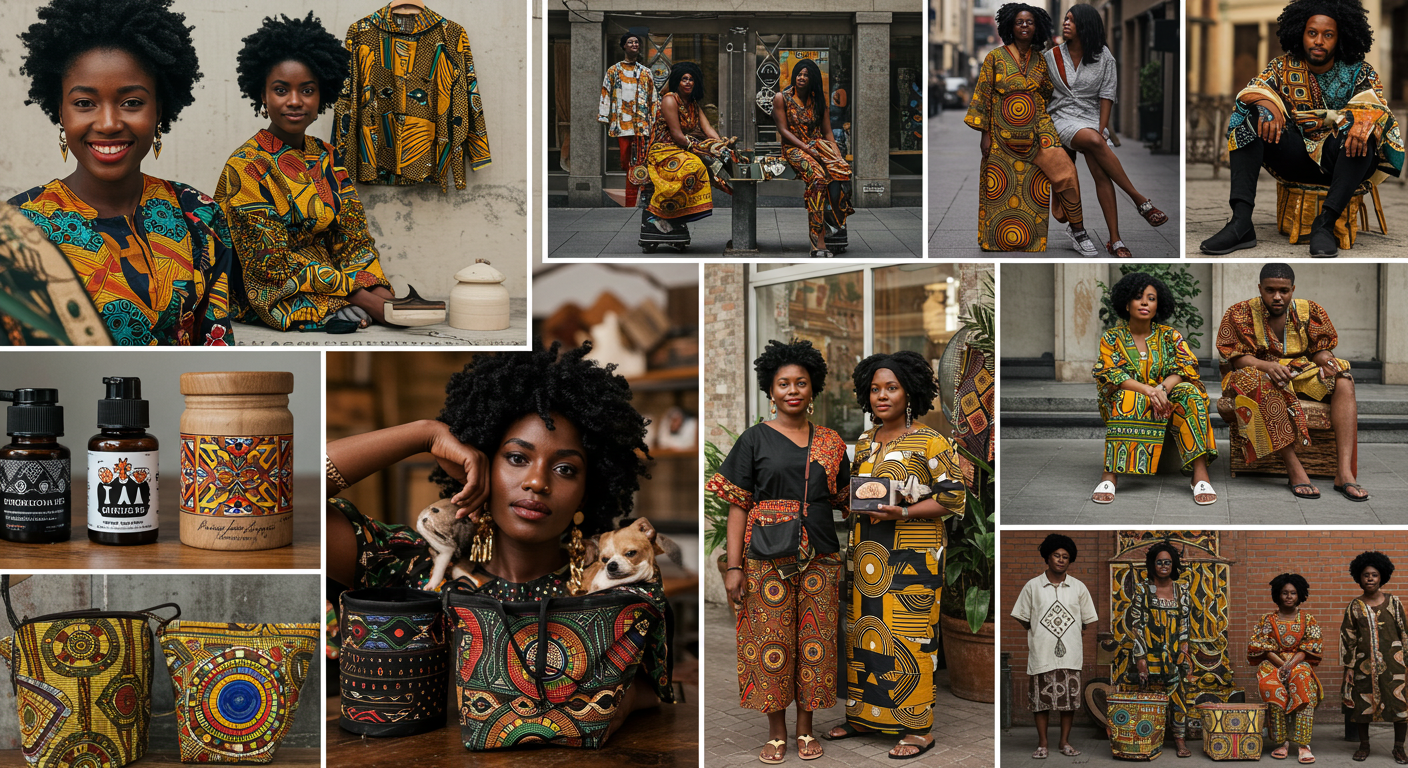Introduction: The Rise of African Lifestyle Brands
Africa has long been a hub of creativity, craftsmanship, and cultural wealth. From bold fabrics and handcrafted accessories to sustainable wellness products and globally inspired home décor, African-owned lifestyle brands are making waves both on the continent and abroad. These brands embody more than just business ventures; they represent identity, pride, and a narrative of self-determination.
In recent years, globalization, digital connectivity, and a surge in interest in Afrocentric aesthetics have positioned African entrepreneurs to showcase their work to the world. Social media platforms like Instagram and TikTok, coupled with e-commerce giants and regional marketplaces, have enabled African designers, artisans, and entrepreneurs to reach international customers directly. At the same time, a growing wave of African consumers are increasingly prioritizing local goods, seeing them not only as fashionable but also as powerful symbols of cultural preservation and economic empowerment.
The lifestyle sector is particularly exciting because it reflects the way people live, express themselves, and relate to heritage. Whether it’s a skincare line infused with indigenous botanicals, a home décor brand inspired by tribal artistry, or a clothing line blending contemporary cuts with traditional prints, African-owned lifestyle brands are steadily reshaping global perceptions of what style, luxury, and authenticity mean.
This article explores some of the most inspiring African-owned lifestyle brands to watch, while also looking at the cultural significance and lifestyle shifts they represent.
The Power of Storytelling Through African Brands
At the heart of every African lifestyle brand lies a story. Unlike mass-produced global labels, these brands often highlight their cultural roots and the narratives of the people behind them. For instance, a brand that produces handwoven baskets may also tell the story of the women’s cooperative that makes them, passing down weaving techniques through generations. A skincare line sourced from shea butter might center its brand identity on the empowerment of rural women in Ghana, linking beauty to community impact.
This storytelling element gives African brands authenticity and emotional resonance, which resonate deeply with conscious consumers worldwide who are increasingly seeking products with meaning and origin.
Categories of African-Owned Lifestyle Brands
- Fashion and Apparel
African fashion brands have become global forces, transforming traditional textiles like Ankara, kente, mud cloth, and shweshwe into chic modern apparel. Designers are blending heritage aesthetics with contemporary styles, creating clothing lines that are wearable anywhere while proudly Afrocentric. Brands like Lemlem (Ethiopia), founded by model Liya Kebede, and Orange Culture (Nigeria), known for its gender-fluid designs, showcase Africa’s bold and diverse fashion scene. - Beauty and Skincare
With Africa’s rich biodiversity, skincare brands are tapping into centuries-old knowledge of indigenous botanicals. Ingredients such as shea butter, baobab oil, marula oil, rooibos, and moringa are now celebrated globally for their healing properties. African-owned skincare brands like Shea Radiance (Nigeria/USA) and Africology (South Africa) highlight not just natural beauty but also wellness rooted in African traditions. - Home Décor and Furnishings
African artisans are transforming home spaces with products inspired by tribal motifs, natural materials, and handcraft techniques. From Zulu beaded designs to Moroccan rugs and Malian mud cloth pillows, African décor brands are positioning themselves as premium lifestyle choices. Brands like Ardmore Design (South Africa) and Okapi (South Africa) combine artistry with luxury, making African-inspired interiors a global trend. - Food and Beverage
The rise of African gourmet and wellness food brands is impossible to ignore. Specialty teas, organic coffee, hibiscus drinks, and spice blends are being packaged and marketed for global palates. Companies like Sahara Tea (Kenya) and Nomi by Naomi (Nigeria) showcase how African flavors are capturing international attention. - Accessories and Jewelry
Jewelry brands draw inspiration from Africa’s history of adornment, creating wearable art with cultural depth. From Maasai beadwork to Tuareg silver and contemporary goldsmithing, African jewelry designers are merging heritage with modern elegance. Pichulik (South Africa) and Adele Dejak (Kenya/Nigeria) are examples of brands transforming local artistry into high-fashion statements.
Why These Brands Matter: Cultural and Economic Significance
African-owned lifestyle brands are more than commercial enterprises. They:
- Preserve cultural heritage by sustaining traditional crafts and passing them to new generations.
- Empower communities by providing jobs, fair trade opportunities, and global exposure.
- Challenge stereotypes by positioning Africa as a center of innovation, style, and creativity rather than simply a supplier of raw materials.
- Encourage sustainability through the use of eco-friendly production methods, local resources, and slow fashion principles.
These brands symbolize Africa’s agency in shaping its global identity and creating wealth through creativity.
The Global Spotlight on African-Owned Lifestyle Brands
Fashion weeks in Lagos, Dakar, Johannesburg, and Accra, along with global collaborations with giants like H&M and Zara, have helped amplify African brands internationally. Celebrities and influencers are increasingly turning to African designers for red-carpet looks, while diaspora communities proudly showcase African-owned products abroad.
Platforms like Afrikrea (an African e-commerce site often dubbed “the Etsy of Africa”) and the rise of pop-up stores in major cities like London, Paris, and New York have given African entrepreneurs the chance to compete with global names.
Conclusion: The Future of African Lifestyle Brands
As Africa’s creative economy continues to grow, its lifestyle brands will play a central role in shaping global trends. With a blend of tradition and modernity, authenticity and innovation, these brands tell a story that is uniquely African yet universally relatable.
For consumers, investing in African-owned lifestyle brands is more than a purchase—it’s a way of supporting creativity, sustainability, and empowerment. For Africa, it’s a way of reclaiming narratives, driving economic growth, and building global prestige rooted in cultural pride.
In the coming years, expect African lifestyle brands to become not just alternatives but leaders in the global marketplace—brands that define how we dress, decorate, nourish, and express ourselves.



